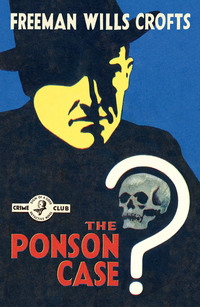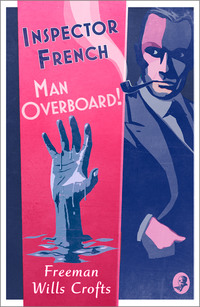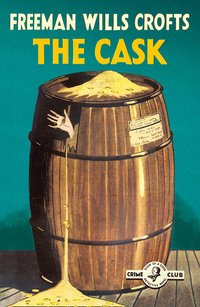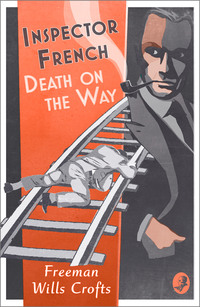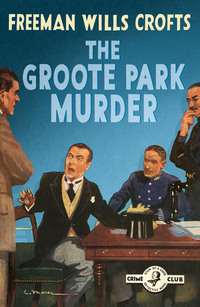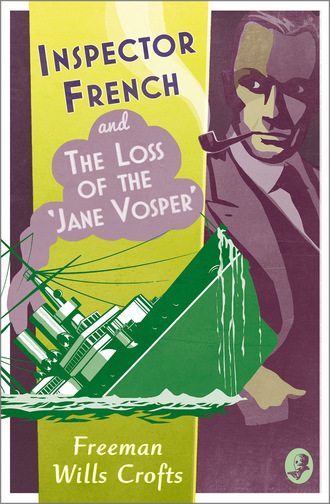
Полная версия
He described, as Captain Hassell had done, the feeling and sound of the first explosion, his first thought that it was an engine-room accident, and then his reassurance on this point. He felt sure from the first that it was not due to the ship striking an obstruction. When, therefore, the captain had said he was taking over the ship and had instructed him to go below and find out what had happened, his first thought had been the holds. He decided that before anything else he must find out if the ship were taking water. The men were aroused by the shock and he called the carpenter and bosun, and sounded the well first in the fore peak and then in Nos. 1 and 2 holds. All these were dry. Then he started to inspect the holds. The second explosion occurred when he was in No. 1 hold, and it sounded in No. 2 hold, beyond the bulkhead. He then went into No. 2 hold, and there he smelled smoke and burnt explosive. The smoke was hanging about rather than pouring up, and he did not think there was serious fire. He was sure the explosions had come from low down in the hold. He was satisfied from the sounds that no explosions had occurred abaft the engines, so he did not sound the well in No. 3 hold.
His researches so far had not shown that there was anything wrong with the ship, so he had gone up again on the bridge to report to Captain Hassell. While doing so the third explosion had occurred. It seemed to come from the same place as the others, and he at once ran down to sound the well in No. 2 hold again. This time he found water was coming into the ship. Moreover, it was gaining so quickly that he didn’t believe anything could be done to stop it. He was satisfied that all the pumps they had on board wouldn’t equal the flow.
But though he realized that they couldn’t keep the water down in No. 2 hold, he believed that the ship would float all right even with this hold flooded, provided the rest of her was tight. He at once sounded No. 1 hold again. He found it dry. He then sounded the fore peak again. It was also dry.
Then he went back to No. 2 hold. There was by this time five feet of water in it, and the level was rising quickly. Arlow sent a man with the news to the captain while his thoughts turned towards the bulkheads. He knew the safety of the ship depended on their holding, and he wondered whether they had been damaged by the explosions and whether any attempt should be made to shore them.
To get a ruling on this point he went again up on the bridge to see the captain. There he found the chief engineer. It appeared that the captain was already discussing strutting the bulkheads with him, and he, Arlow, was now instructed to get the forward bulkhead shored up from No. 1 hold. He went down at once and saw to getting out beams and wedges.
Arlow then described his once again sounding the well in No. 1 hold after the fourth explosion, and his horror at finding that this hold also was taking water. It was coming in slowly, and he thought the pumps should hold it. He was about to report in person to the captain, when he heard the pumps starting. He sent a man to the captain and then carried on with his work.
He told in detail, made more convincing by its moderate language and freedom from word painting, of the terrible job he had there in the hold. Everything was jammed up with cargo. It was piled against the face of the bulkhead, and he couldn’t get it clear. He began to despair of his job, thinking that they would have to wait till the hatch could be opened and the winches got to work.
They had, however, after great efforts, succeeded in getting the cargo moved back in the centre of the bulkhead for a width of some four feet, and they were gradually working down the face to make a sort of well or sump down which they could get to the water and perhaps put down suction pipes for additional hand pumps, as well as getting in some timbers against the bulkhead, which could afterwards be strutted back from the beams or the after end of the hatch. While they were working the water was gaining on them; admittedly quite slowly, but definitely. With the pumps they had they couldn’t keep it down. However, they had stuck to the work until they were recalled by the captain, who said that he had decided to abandon the ship. With regard to the actual taking to the boats, seeing the Jane Vosper sink, and being picked up by the Barmore, he simply repeated what the captain had already said.
‘You are the officer responsible for the stowage of the cargo, are you not?’ Armitage asked, when all this evidence had been taken.
‘Yes, sir, it was done under my supervision and I have a note of it all.’
At this the interest of Jeffrey and several more quickened. But their curiosity was not about to be satisfied. Armitage turned to Trafford and said that with his permission he would not take this part of the witness’s evidence at the moment, but would recall him later, finishing first with what took place on the voyage.
The magistrate agreed that this would be a desirable proceeding, and said that in that case he would adjourn for lunch, ending up with the exhortation, ‘Two o’clock, please, gentlemen.’
Everyone filed out as quickly as they could, Jeffrey, Alexander and Sutton among the others.
Конец ознакомительного фрагмента.
Текст предоставлен ООО «ЛитРес».
Прочитайте эту книгу целиком, купив полную легальную версию на ЛитРес.
Безопасно оплатить книгу можно банковской картой Visa, MasterCard, Maestro, со счета мобильного телефона, с платежного терминала, в салоне МТС или Связной, через PayPal, WebMoney, Яндекс.Деньги, QIWI Кошелек, бонусными картами или другим удобным Вам способом.


